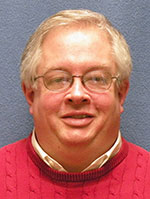Reflection / Sean Gallagher
Highs and lows in racing and in life can lead to humility, gratitude
 The Indianapolis 500 is a grinding marathon. Drivers and their teams have to push themselves and their cars to their utmost for 500 miles over nearly three hours to even have a chance to finish first.
The Indianapolis 500 is a grinding marathon. Drivers and their teams have to push themselves and their cars to their utmost for 500 miles over nearly three hours to even have a chance to finish first.
But in most cases, all of their combined racing knowledge and experience will come up short. After all, only one driver can win the race.
What keeps the other 32 drivers out of the speedway’s Victory Lane? Sometimes it’s race-changing moments that are out of their control. At other times, it’s the tiniest of mistakes.
Both happened last Sunday. IndyCar’s 2021 series champion Alex Palou was the second fastest qualifier for this year’s Indy 500 and traded the lead often in the early part of the race with his teammate and pole sitter Scott Dixon.
But a crash that occurred just when Palou was coming in for his second pit stop closed pit lane and forced him to drive through it without getting any service.
Low on fuel, Palou was forced to come down the closed pit lane again to refuel. That resulted in him being assessed a drive-through penalty. This quirk in timing, wholly out of Palou’s control, led to him going from the leaders in the race to the back of the pack.
Dixon was at the top of the field for much of the race, leading 95 of its 200 laps. No other driver, except Palou, could challenge him.
But when he went in for his last pit stop late in the race, Dixon drove just above the speed limit for the pit lane and was assessed a drive-through penalty, which put him at the back of the field. He finished in 21st place.
The racer who benefitted from these misfortunes was winner Marcus Ericsson. But the race’s Borg Warner Trophy didn’t just fall into his lap. He was the fifth fastest qualifier for the race and drove hard all Sunday to put himself into a position to take advantage of Dixon’s late downfall.
What happened in the 106th Indy 500 happens to all of us. We set goals large and small. Our hard work to achieve them is sometimes thwarted by circumstances out of our control or just small mistakes that have effects that seem out of proportion.
This can naturally lead to the kind of tremendous frustration that Palou and Dixon experienced last Sunday. But if we’re wise, it can lead us to a humble recognition of the mysterious work of God’s providence in our lives.
Dixon has experienced tremendous success in his racing career, winning six IndyCar series championships and 51 races, third only to racing legends A.J. Foyt and Mario Andretti. He even won the Indy 500 back in 2008.
That racing excellence is often overshadowed by Dixon’s checkered (but mostly not checkered flag) record at Indianapolis. While he’s been the race’s pole sitter five times, including this year, he’s more known for the hard luck and mistakes that’s kept him from winning.
No matter how frustrating his record in the Indy 500 might be, Dixon can humbly find satisfaction in the success he’s experienced elsewhere.
Likewise, while Ericsson can be justifiably proud of the effort he made to win the Indy 500, an easy examination of the overall causes of his victory should lead him to humility, too. Circumstances wholly out of his control had to happen for him to win.
Humility, strengthened by God’s grace and a prayerful examination of our lives, can lead us to a more thorough and long-lasting satisfaction for the successes we’ve experienced, but maybe not originally planned for ourselves.
More importantly, humility can lead us to gratitude for the many ways that God works in our lives that are entirely his loving gift to us.
(Sean Gallagher is a reporter and columnist for The Criterion.) †
 The Indianapolis 500 is a grinding marathon. Drivers and their teams have to push themselves and their cars to their utmost for 500 miles over nearly three hours to even have a chance to finish first.
The Indianapolis 500 is a grinding marathon. Drivers and their teams have to push themselves and their cars to their utmost for 500 miles over nearly three hours to even have a chance to finish first.